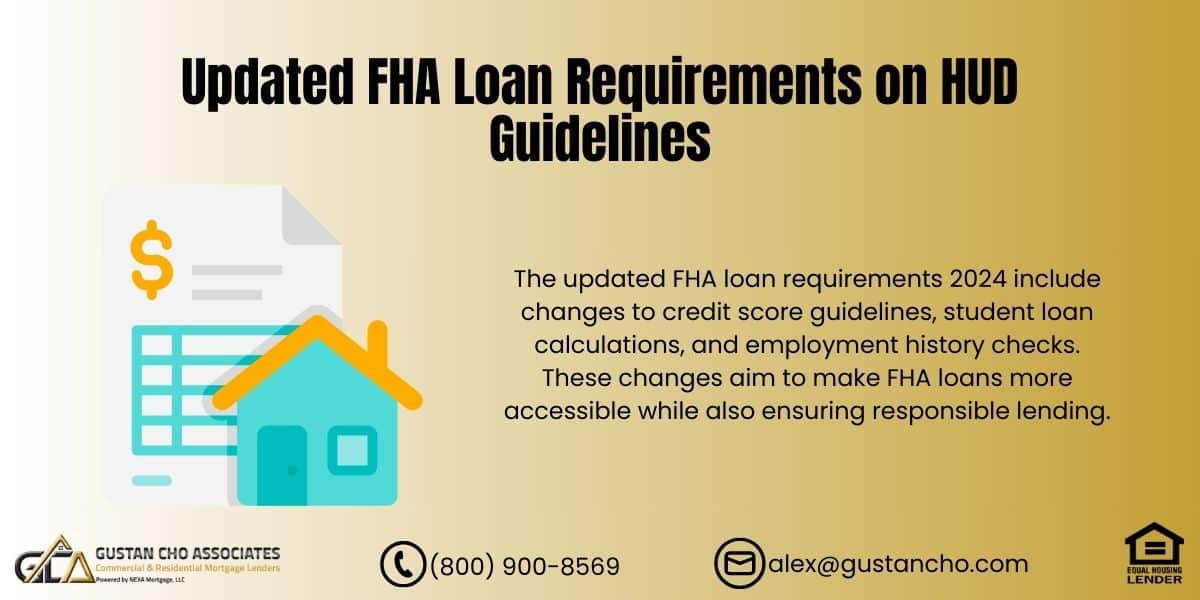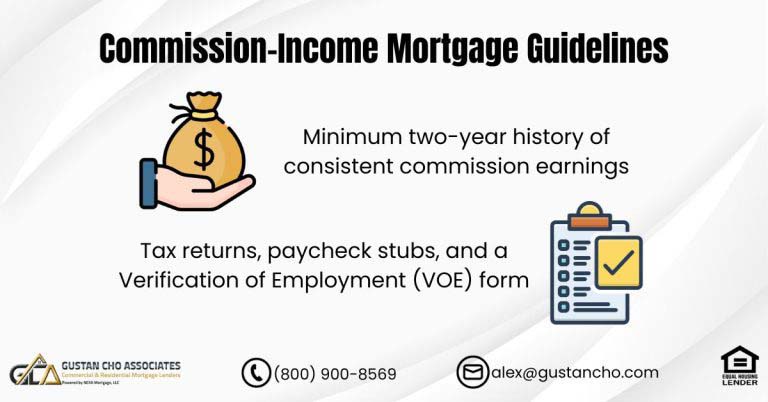Updated FHA Loan Requirements for 2024: What You Need to Know
Are you considering an FHA loan to buy a home? FHA loans are popular because they’re one of the easiest types of mortgages to qualify for, especially if you’re a first-time buyer or have had credit issues. In this guide, we’ll review everything you need to know about updated FHA loan requirements 2024.
We’ll walk you through each step, from credit scores and down payments to student loan guidelines and income requirements. With these updates, FHA loans can still make homeownership a reality for many people.
Why FHA Loans Are So Popular
FHA loans are backed by the Federal Housing Administration, which helps lenders feel confident lending to buyers with low credit or high debt. Here are a few reasons why FHA loans are a top choice for many homebuyers:
- Lower Credit Requirements: FHA loans can be obtained by borrowers with credit scores starting at 500.
- Low Down Payments: Eligible buyers can make a down payment as low as 3.5%.
- Flexible Income Requirements: You can even have a non-occupant co-borrower, like a family member, help you qualify.
These factors make FHA loans a great choice, especially for first-time buyers or those with credit challenges. Now, let’s get into the updated FHA loan requirements for 2024.
Buying your first home? FHA loans make it easier!
Apply now and take the first step toward homeownership.
What Are the Types of FHA Loans?
FHA loans come in different forms to fit various buyer needs. Here are the types of FHA loans available in 2024:
- Fixed-Rate FHA Loan: A traditional loan with a stable, fixed interest rate over 15 or 30 years.
- Adjustable-Rate FHA Loan (ARM): A loan with a lower initial interest rate that adjusts over time.
- FHA 203(b) Loan: The most common FHA loan used to buy or refinance a primary home.
- FHA 203(k) Loan: Designed for buyers who want to finance home purchases and repairs in one loan.
- FHA Streamline Refinance: A simpler way for FHA borrowers to refinance and lower their rate.
- Energy Efficient Mortgage (EEM): Allows borrowers to finance energy-saving home improvements.
- Graduated Payment Mortgage (GPM): Starts with lower payments that increase over time.
- Home Equity Conversion Mortgage (HECM): It is also a reverse mortgage for individuals aged 62 and above.
Each type of FHA loan offers different benefits, so knowing which one best fits your needs is good.
2024 Updated FHA Loan Requirements: Credit Scores
The updated FHA loan requirements make it clear what credit scores are needed to qualify:
- 500–579 Credit Score: You’ll need a 10% down payment.
- 580 or Higher Credit Score: You can qualify with a 3.5% down payment.
If your credit score is lower, don’t worry—FHA loans can still be an option. These loans are designed to work with borrowers with past credit challenges, including bankruptcy or foreclosure.
How Deferred Student Loans Affect FHA Loan Approval in 2024

- Income-Based Repayment (IBR): If you’re on an IBR plan, the FHA will use that lower monthly payment in your DTI, making qualifying easier.
- If No Monthly Payment Shows Up: When no payment amount is listed, lenders will calculate 0.5% of your loan balance to estimate your monthly payment.
This change helps buyers with student loans know what to expect when calculating DTI ratios.
FHA’s Updated Appraisal Requirements
The FHA’s new requirements for home appraisals aim to ensure properties meet standards for safety and functionality.
- Three-Year Chain of Title: Appraisers must look at the past three years of property ownership history to prevent issues with property flipping.
- Appliance Checks: Appraisers check that appliances like dishwashers, stoves, and refrigerators are working, which means utilities must be turned on.
- Ownership Review: Appraisers will check records to avoid issues with undisclosed transactions.
These guidelines protect buyers by making sure the home is in good shape.
Is your home FHA-ready? Don’t let appraisal issues delay your loan approval!
Apply now for a free consultation and ensure your home meets FHA appraisal standards before you buy.
Employment Requirements for FHA Loans: What’s New in 2024
FHA loans come with new employment guidelines to ensure borrowers’ steady income.
- Frequent Job Changes: If you’ve changed jobs three times in the past year, lenders will verify your current income and make sure it’s stable for the next three years.
- Part-Time Income: You need two years of continuous part-time work to use this income for your loan.
- Employment Gaps: To qualify for job gaps over six months, you’ll need to have been with your current employer for six months.
These updates give lenders confidence in approving FHA borrowers who show job stability.
Updated Rules for Installment Debts Less Than 10 Months
In the past, installment debts (e.g., car payments) with fewer than 10 months left could be left out of your DTI calculations. In 2024:
- Debts With 10 Months or Less Can Be Excluded: Only if your remaining payments total 5% or less of your gross monthly income.
This flexibility helps borrowers maintain a healthy DTI ratio near the end of their installment loans.
Guidelines for Non-Taxable Income
FHA allows non-taxable income (like Social Security) to be “grossed up,” which means increasing the income amount for loan calculations.
- New Gross-Up Rate: Non-taxable income can be increased by 15% or your actual tax rate (if known).
- Documentation Needed: Lenders need documentation confirming that the income is non-taxable.
This lets FHA borrowers with fixed incomes show more qualifying income.
Using Gift Funds as a Down Payment
You can still use gift funds for your down payment, but the updated FHA loan requirements require proof that the funds have been in the donor’s account for at least 30 days.
- Documentation: If the gift is from a real estate commission (like a family member’s agent), lenders need proof of the agent’s real estate license.
This ensures transparency when family members help with down payments.
FHA Loan Requirements for Rental Income on Retained Homes
The FHA has updated requirements if you’re keeping your current home as a rental while moving into a new one.
- New Home Distance: To count rental income, the new home must be at least 100 miles away from your current property.
- Equity Requirement: If your tax returns don’t show a rental history, your retained home must have at least 25% equity.
These guidelines help buyers who need to relocate without negatively impacting their DTI ratio.
Using Authorized Credit User Accounts for FHA Loans
If you are an authorized user on someone else’s card, it may lead the FHA to consider that debt in your debt-to-income ratio (DTI).
- 12-Month Payment History: If the primary user has paid on time for a year, you may be able to exclude the debt.
- Proof Needed: You’ll need bank statements or canceled checks from the last 12 months to show consistent payments.
This update allows borrowers who use authorized credit accounts responsibly to improve their DTI calculations.
Ready to Apply for an FHA Loan?
With these updated FHA loan requirements in 2024, FHA loans remain an accessible and flexible option for many homebuyers. Whether you’re a first-time buyer or coming back to the market, FHA loans could help you get into a new home sooner.
Ready to take the next step? Apply for an FHA loan now and begin your path to owning a home! Call or text us at 800-900-8569 or email us at alex@gustancho.com.
Frequently Asked Questions About Updated FHA Loan Requirements:
Q: What are the Updated FHA Loan Requirements for Credit Scores in 2024?
A: The updated FHA loan criteria for 2024 allow individuals to qualify with a credit score of just 500 if they can provide a 10% down payment. Alternatively, those with a credit score 580 can secure a loan with a much more accessible down payment of 3.5%. This change signifies an opportunity for many potential homeowners to enter the housing market.
Q: Can I Get an FHA Loan if I Have Student Loans?
A: Yes! With the updated FHA loan requirements, all student loans now count in your debt-to-income ratio (DTI), but income-based repayment amounts can be used, which may lower your DTI.
Q: Do I Need a High Income to Qualify for an FHA Loan?
A: Not necessarily. FHA loans are designed to work with various income levels. Plus, with the updated FHA loan requirements, you can even use a non-occupant co-borrower, like a family member, to help you qualify.
Q: What is the Minimum Down Payment Required Under the Updated FHA Loan Requirements?
A: If your credit score is 580 or above, the lowest down payment you can make is 3.5%. For 500 to 579 credit scores, a down payment of 10% is necessary.
Q: What Happens if I have Deferred Student Loans?
A: Under the updated FHA loan requirements, deferred student loans are now counted in your DTI. If no payment is listed, FHA will consider income-based repayment amounts or 0.5% of your loan balance.
Q: Can I Use Gift Funds for My Down Payment?
A: Yes, FHA allows gift funds for down payments, but the updated FHA loan requirements require you to document these funds. Proof that the funds have been in the donor’s account for at least 30 days is necessary.
Q: Do the Updated FHA Loan Requirements Affect Home Appraisals?
A: Yes, FHA appraisals now have stricter rules. Appraisers must review a property’s ownership history for the past three years and check that all appliances are operational.
Q: Can I Still Qualify for an FHA Loan if I Change Jobs Often?
A: It depends. If you’ve changed jobs three times in the past year, FHA lenders must verify that your current income is stable per the updated FHA loan requirements.
Q: How Does Rental Income from my Current Home Factor into my FHA Loan?
A: If you plan to rent out your current home while buying a new one, the updated FHA loan requirements allow rental income to count if the new home is over 100 miles away and you have at least 25% equity in your current property.
Q: Can I Use Income That Isn’t Taxed, Like Social Security, to Qualify for an FHA Loan?
A: Yes, FHA allows non-taxable income to be “grossed up” by 15% or your actual tax rate, which can help with qualification. This is part of the updated FHA loan requirements for 2024.
This blog about “Updated FHA Loan Requirements on Home Loans” was updated on November 7th, 2024.








